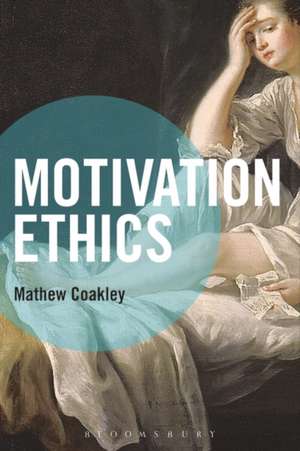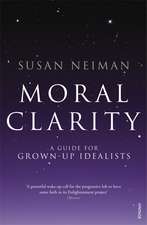Motivation Ethics
Autor Mathew Coakleyen Limba Engleză Paperback – 25 ian 2017
| Toate formatele și edițiile | Preț | Express |
|---|---|---|
| Paperback (1) | 174.07 lei 3-5 săpt. | |
| Bloomsbury Publishing – 25 ian 2017 | 174.07 lei 3-5 săpt. | |
| Hardback (1) | 540.80 lei 6-8 săpt. | |
| Bloomsbury Publishing – 25 ian 2017 | 540.80 lei 6-8 săpt. |
Preț: 174.07 lei
Preț vechi: 224.91 lei
-23% Nou
Puncte Express: 261
Preț estimativ în valută:
33.32€ • 36.20$ • 28.01£
33.32€ • 36.20$ • 28.01£
Carte disponibilă
Livrare economică 31 martie-14 aprilie
Preluare comenzi: 021 569.72.76
Specificații
ISBN-13: 9781350004597
ISBN-10: 1350004596
Pagini: 264
Dimensiuni: 156 x 234 mm
Greutate: 0.43 kg
Editura: Bloomsbury Publishing
Colecția Bloomsbury Academic
Locul publicării:London, United Kingdom
ISBN-10: 1350004596
Pagini: 264
Dimensiuni: 156 x 234 mm
Greutate: 0.43 kg
Editura: Bloomsbury Publishing
Colecția Bloomsbury Academic
Locul publicării:London, United Kingdom
Caracteristici
Provides arguments against several of the most widely-accepted current theories and arguments for why we should consider basing moral evaluations on motivations
Notă biografică
Mathew Coakley is a Teaching Fellow in Political Theory at Warwick University, UK. He has taught on ethics and political philosophy at both NYU and at the London School of Economics. His primary areas of research are political theory and ethics, with interests in epistemology and the philosophy of economics.
Cuprins
AcknowledgementsIntroduction and overview1. Consequentialism and the Moral Agent Problem2. Motivation Ethics3. Deontology and the Moral Agent Problem 4. Moral Demandingness and Two Concepts of Evaluation5. The Problem of Special Relationships6. Global Duties and the State7. Legitimacy and the Good8. Interpersonal Comparisons of the Good9. ConclusionsEpilogue: On the scope of reasonNotesBibliographyIndex
Recenzii
A passionate and engaging critique of consequentialism, offering a credible alternative. By putting motivations centre stage Coakley opens up exciting new avenues in moral and political philosophy.
The scope and ambitions of this book are tremendous. It moves from foundational claims in normative ethics to a revisionist theory of political legitimacy, develops in the process a new approach for making interpersonal comparisons of welfare, and showcases a parsimonious ethical methodology anchored in the idea of non-arbitrariness. It will be of interest to a wide range of readers in philosophy, political theory, law, economics, political science and related fields.
This is a book of stunning breadth and ambition. It defends a novel moral theory that differs from existing ones in fundamental ways and proposes an original method for conducting ethical reasoning. Coakley also offers new perspectives on classical problems such as interpersonal comparisons of utility and political legitimacy. The book will appeal to all those interested in new ways of thinking whether in philosophy, political and legal theory or the social sciences more broadly.
The scope and ambitions of this book are tremendous. It moves from foundational claims in normative ethics to a revisionist theory of political legitimacy, develops in the process a new approach for making interpersonal comparisons of welfare, and showcases a parsimonious ethical methodology anchored in the idea of non-arbitrariness. It will be of interest to a wide range of readers in philosophy, political theory, law, economics, political science and related fields.
This is a book of stunning breadth and ambition. It defends a novel moral theory that differs from existing ones in fundamental ways and proposes an original method for conducting ethical reasoning. Coakley also offers new perspectives on classical problems such as interpersonal comparisons of utility and political legitimacy. The book will appeal to all those interested in new ways of thinking whether in philosophy, political and legal theory or the social sciences more broadly.















